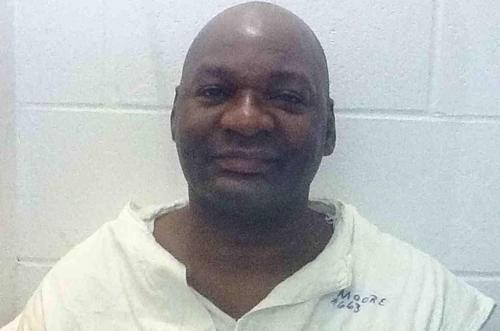08 June 2018 :
The Texas Court of Criminal Appeals has upheld the death sentence of Bobby Moore in a case over the definition of intellectual disability - despite pleas from both Moore and the prosecution to change his sentence to life in prison. More than a year ago (see March 28, 2017), the U.S. Supreme Court knocked down Texas' method of determining intellectual disability for death-sentenced inmates in Moore's case, ruling it used outdated medical standards and rules invented by elected judges without any authority. In a 4-3 ruling on Wednesday, the Texas Court of Criminal Appeals accepted the use of current medical standards to determine intellectual disability but said Moore still fails to qualify - making him eligible for execution. Moore was sentenced to death nearly 38 years ago, 3 months after he walked into a Houston supermarket with 2 other men and fatally shot James McCarble, the 73-year-old clerk behind the counter, according to court documents. The recent fight over his mental deficiencies began after a lower Texas court ruled in 2014 that Moore was intellectually disabled and therefore ineligible for execution, basing its decision on current medical standards. The Court of Criminal Appeals overturned that ruling using its own test, which the Supreme Court later invalidated, sending the case back to Texas. The Texas test created by the court included questioning whether a neighbor or family member would consider the person disabled, the person's ability to lie and the planning involved in the murder. In a new evaluation using the current medical framework, the majority of the Court of Criminal Appeals ruled that Moore still did not show enough adaptive deficits to qualify as intellectually disabled, citing the fact that he learned to read and write in prison and buy items from commissary - the prison's store. The Supreme Court had warned against using strengths gained in a controlled environment like prison, but the Texas court said some of Moore's deficits were due to the "lack of opportunity to learn," according to the opinion written by Presiding Judge Sharon Keller. The court's opinion also noted that before the Supreme Court ruled in 2002 that people with intellectual disabilities were exempt from execution, Moore had claimed in court that he did not have a disability and that his difficulties were due to an abusive childhood and his lack of learning opportunities. In a 67-page dissent, death-penalty critic Judge Elsa Alcala, joined by Judges Bert Richardson and Scott Walker, said the court's majority erred in its use of the current medical standards, and that Moore is intellectually disabled. Alcala said the court disregarded the standards by improperly weighing Moore's strengths against his deficits in his adaptive functioning and put too much weight on his progress in a controlled death row environment. She cited the decision by the lower Texas court that held a live hearing on the issue, Harris County District Attorney Kim Ogg's request for a change of sentence based on Moore's deficiencies, and many observations in the Supreme Court ruling that appeared to agree Moore was disabled. "I'm in good company in reaching this conclusion," Alcala wrote. "There is only 1 outlier in this group that concludes that applicant is ineligible for execution due to his intellectual disability, but unfortunately for applicant, at this juncture, it is the only one that matters." In court, it has been shown that Moore lacked understanding of days of the week at 13 and struggled to tell time or do basic math. He dropped out of school after failing every subject in 9th grade, according to the Supreme Court ruling. Though it hasn't changed his sentence, the Supreme Court ruling in Moore's case has had repercussions throughout Texas. At least two men on death row had their sentences changed to life in prison after the ruling, and on Tuesday, the Court of Criminal Appeals halted an execution set for June 21 because of the Moore case. The judges sent the case of Clifton Williams back to a lower court to look into claims of intellectual disability given the Supreme Court ruling. Though Moore will remain on the row in solitary confinement, it seems unlikely he will get an execution date set while Ogg is in office. Execution dates are set by convicting county courts after appeals have been exhausted, usually prompted by the district attorney's office. And Ogg asked the Court of Criminal Appeals to change Moore's sentence to life in prison last November (see November 1, 2017), agreeing that he was intellectually disabled. Ogg's office said Wednesday morning it was preparing a statement, but did not immediately have a response to questions.











